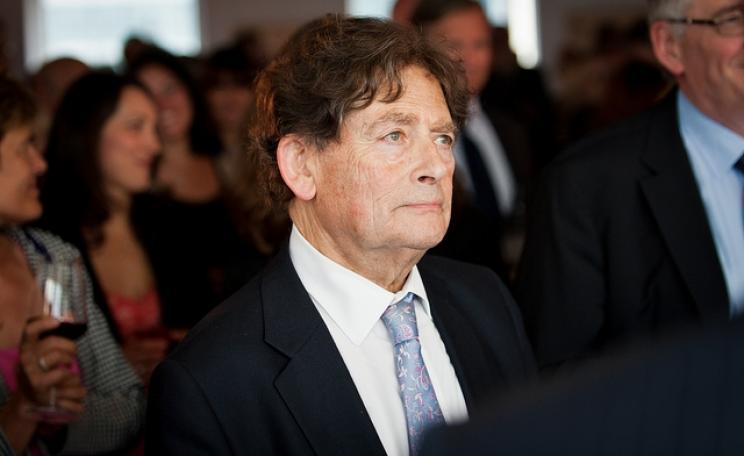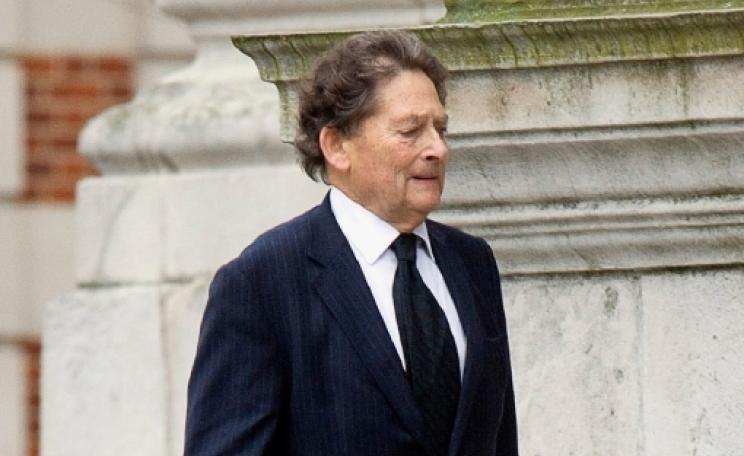Henderson wanted to attack scientists and environmentalists for their failed prophecies of doom.
David Henderson was a fellow of the Institute of Economic Affairs (IEA) where he is valued as an eloquent and modest advocate of radical free market capitalism. But, his engagement with climate scepticism “came about in an entirely unplanned and fortuitous way.”
The former head of the economic division of the state-funded international Organisation for Economic Co-operation and Development (OECD) was, in April 2003, spending his retirement busily devising a book which he planned to call False Consensus: Dark Visions and Collectivist Remedies.
Henderson wanted to attack scientists and environmentalists for their “failed prophecies of doom”, which he would contrast with “the actual record of economic performance” in order to make the face for free market capitalism.
Castles in Australia
He proposed writing the book with Ian Castles, the retired head of the Australian state’s Bureau of Statistics – living in Canberra, Australia – who he described as a “kindred spirit” and fellow classical liberal. The book synopsis made no mention of climate change and neither man had any interest in the subject.
By happenstance, Dr Rajendra Pachauri (pictured above) visited Canberra in his new role as chairman of the UN Intergovernmental Panel on Climate Change (IPCC) the following July. Pachauri was seen by some as ExxonMobil's pick after Dr Bob Watson was removed from the post.
Castles was invited to the Canberra event and decided to use the meeting to raise his concerns with the climate panel on how the third assessment report from 2000 was “technically at fault” in the way that it compared the gross domestic product (GDP) of different countries.
Castles believed the method used by the IPCC to compare the GDP of different countries in the third assessment report was fundamentally flawed. He persuaded Henderson to join his cause and “these two strange old gentlemen” became the Jack Lemmon and Walter Matthau of climate scepticism.
Mistaken inferences
Henderson recalls: “We argued that in consequence [of the error] these growth projections for poor countries were biased upwards: and we inferred from this, though we were mistaken, which it took us some time to realise.”
The two men were invited to present at IPCC events and encouraged to engage with the scientists writing the reports but, after some months, Pachauri failed to respond to their almost impenetrably technical letters.
Henderson wanted to attack scientists and environmentalists for their failed prophecies of doom.
Henderson was frustrated and insulted by the lack of concern paid to his statistical analysis and came to question the panel’s processes and climate findings more fundamentally. He sent his criticisms to his close friend Clive Crook, then deputy editor of the Economist, who published an article that “put our arguments better than we had put them ourselves”.
Political agenda
Henderson then sent the entire correspondence with Pachauri to Sonja Boehmer-Christiansen, the editor of Energy and Environment, which has become the house journal of the climate sceptics with a reputation for publishing papers that do not meet the basic scientific standards.
Boehmer-Christiansen would explain her general editorial practice some months later: “I’m following my political agenda – a bit, anyway. But isn’t that the right of the editor?”
Henderson conceded that “few editors would have acted as she did.”
Purveyors of disinformation
Pachauri appears to have assumed that the publication of letters in a notoriously sceptic journal was a hostile act.
He called a press conference during the Conference of the Parties (COP) held in Milan in December 2003 and, according to Henderson, “said that we should be classed as purveyors of disinformation.”
The two men continued to lobby the IPCC to amend its statistical analysis and, in doing so, became unwitting heroes of the sceptic movement.
“Ian and I had chiefly focused on economic and statistical aspects of the work undertaken and published under IPCCauspices. But as time went on, our involvement broadened in ways that we had neither planned or anticipated,” Henderson explained.
IPCC foe
Henderson soon discovered the complaints about the IPCC and statistical critiques of the climate science set out by McIntyre and McKitrick.
He became convinced that “their writings, and later those of David Holland, not only placed in question widely accepted and influential results of IPCC-related work in climate science, but also exposed serious professional flaws in the conduct of that work.”
Had Pachauri been less combative and, instead, established whether Henderson had in fact discovered a statistical flaw, then perhaps the old IEA fellow may not have become one of his most able and determined foes.
Henderson passed away on 30 September 2018 aged 91. Myron Ebell of the ExxonMobil funded Competitive Enterprise Institute, wrote: "I had the good fortune to work with him in the climate debate for over a decade and also when the Competitive Enterprise Institute in 2004 republished his The Role of Business in the Modern World, originally published by the Institute of Economic Affairs in London.
"I shall miss him, as will Fred Smith, Iain Murray, Marlo Lewis, Ivan Osorio, and all of us at CEI who had the pleasure to work with him over the years."
John Henderson, his son, wrote on the Global Warming Policy Foundation website: "A great mind he was also a wonderful family man and will be much missed by his son John, sister Jane and four grandchildren."
This Author
Brendan Montague is editor of The Ecologist, founder of Request Initiative and co-author of Impact of Market Forces on Addictive Substances and Behaviours: The web of influence of addictive industries (Oxford University Press). He tweets at @EcoMontague. A version of this article first appeared at Desmog.uk.







